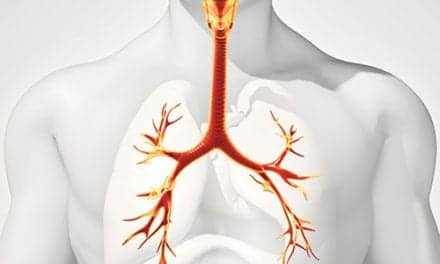A protein called Rho kinase, known as ROCK, may contribute to the failure of myofibroblasts to undergo apoptosis, the pre-programmed process in which myofibroblasts die in healthy lungs and contribute to idiopathic pulmonary fibrosis (IPF), an interstitial lung disease,, according to researchers at UAB.
By activating a mechanical signaling pathway that causes the myofibroblasts to respond to mechanical cues, ROCK promotes the survival of myofibroblasts and leads to more scar tissue formation, creating a vicious cycle of non-resolving repair.
“Fibrosis begets more fibrosis in a sort of feed-forward mechanism,” said Victor Thannickal, MD, director of the Division of Pulmonary, Allergy and Critical Care Medicine and senior author of the study. “The ROCK pathway ultimately helps to keep the myofibroblasts alive and evade apoptosis.”
Investigators believe this information “may also provide targets to interfere with the ROCK pathway and provide a viable therapy.” Possible therapies include fasudil, a ROCK inhibitor prescribed to stroke patients. In animal models and in human IPF tissue studied in cell culture, fasudil blocked ROCK activation and promoted normal apoptosis of myofibroblasts, according to researchers.
“Dysfunctional apoptosis is implicated in a number of diseases, such as cancer, autoimmune diseases and inflammatory and fibrotic diseases,” said Thannickal. “This discovery of the ROCK pathway and its specific role in mechanosensitive signaling and controlling apoptosis opens up intriguing new avenues for research.”
UAB is a leader in research and treatment for idiopathic pulmonary fibrosis. A member of the federally funded IPF Clinical Research Network, UAB is actively engaged in finding therapies for this condition that has no FDA-approved treatments.









